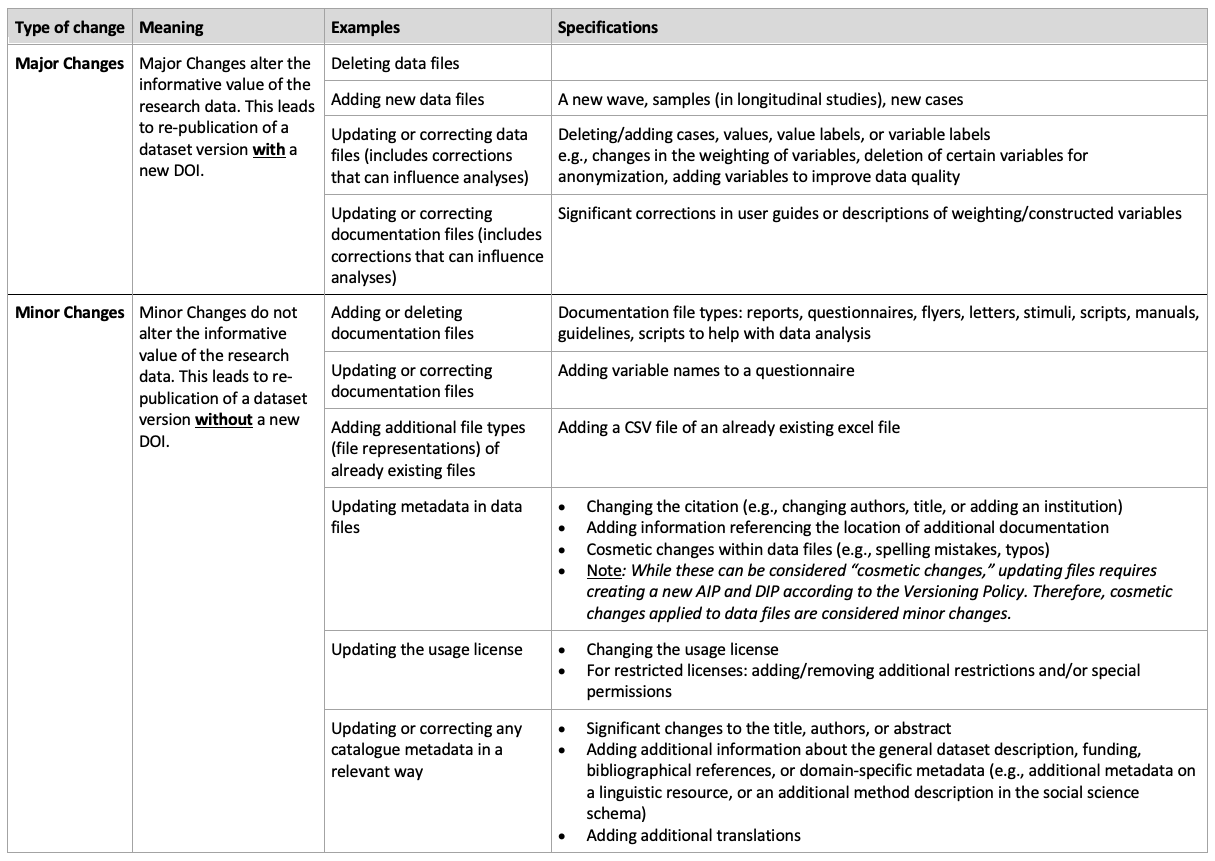Data Versioning
What is Data Versioning?
Data versioning is essential for managing and tracking changes in datasets, which frequently undergo revisions, corrections, or enhancements. Effective data versioning ensures researchers can accurately identify and cite specific dataset versions, bolstering research reproducibility and data integrity in fast-evolving research contexts.
SWISSUbase Data Versioning Policy
The SWISSUbase Data Versioning Policy provides a structured framework to version datasets and studies, ensuring consistent tracking and clear identification of data revisions. This policy aids in maintaining the integrity and reliability of research data, promoting transparency and reproducibility.
Key aspects of the policy include detailed procedures for handling major, minor, and cosmetic changes, ensuring that all data updates are effectively managed and that all versions are traceable through their unique Digital Object Identifiers (DOIs).
Read the Full SWISSUbase Data Versioning Policy: SWISSUbase Data Versioning Policy
View the Table of contents
1 Introduction
2 DOI – Digital Object Identifier
3 Versioning Principles
4 Version Number Structure
4.1 Types of Changes (Major, Minor and Cosmetic Changes)
5 Version Control procedures
6 Version History Management
7 Citation
8 Compliance and Monitoring
This policy is designed to provide a robust yet flexible framework for consistent and transparent data versioning across all datasets and studies within SWISSUbase.
Please note: Features related to “cosmetic changes”, the “version history” and the “canonical DOI” are under development and will be available by the end of 2024.
What are Major and Minor Changes?
Are you a data depositor unsure whether to classify an update as a Major or a Minor Change?
Below are examples to guide your decision-making.

Contact Information for Inquiries
If you have any questions or need further assistance, please contact the responsible Data Service Unit (DSU) of your domain or institution.

